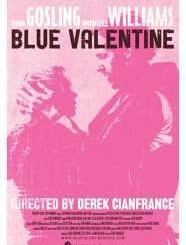Originally we reviewed Secret Sunshine when it screened at the 2007 New York Film Festival. As it is screening today and Saturday at the Philadelphia Film Festival as part of their “From The Vaults” programming track, we’re re-presenting it.
 Secret Sunshine is an emotional tour de force, taking its audience to the heart of a mother’s worst fear and then following her ensuing descent into a vortex of depression, denial and ultimately, madness.
Secret Sunshine is an emotional tour de force, taking its audience to the heart of a mother’s worst fear and then following her ensuing descent into a vortex of depression, denial and ultimately, madness.
Recently widowed Lee Sin-ae (Jeon Do-yeon) moves with her young son to Miryang, the hometown of her deceased husband. There she hopes to establish a new life while maintaining a link to her past. As she settles in, she starts a business teaching piano and begins to make friends. In an effort to impress her newfound friends and neighbors, she talks about buying some land and building a home. This illusion of affluence, however, makes her son the target of kidnappers, who demand a ransom that Sin-ae can’t pay. When the kidnappers don’t believe her protests that she doesn’t have the ransom amount they think she has, her son is found dead and the kidnapper is revealed to be someone close to her.
 Such is the plot to only the first third or so of the movie. Where that would be enough for a whole movie in another’s hands, but for Lee Chang-Dong it is just set up for the gut-wrenching journey Sin-ae is on the road to. The success of this movie rests entirely on the shoulders of Jeon, who gives an incredible performance. As Sin-ae’s fortunes continue to sour, Jeon takes us step-by-step through her breakdown and descent into despair. It is this measured, naturalistic performance that keeps the film from becoming mawkish melodrama, overridden with histrionics that seem more about acting a character than being the character. Her work also helps ground the proceedings when Sin-ae becomes involved with Korea’s growing Christian church community.
Such is the plot to only the first third or so of the movie. Where that would be enough for a whole movie in another’s hands, but for Lee Chang-Dong it is just set up for the gut-wrenching journey Sin-ae is on the road to. The success of this movie rests entirely on the shoulders of Jeon, who gives an incredible performance. As Sin-ae’s fortunes continue to sour, Jeon takes us step-by-step through her breakdown and descent into despair. It is this measured, naturalistic performance that keeps the film from becoming mawkish melodrama, overridden with histrionics that seem more about acting a character than being the character. Her work also helps ground the proceedings when Sin-ae becomes involved with Korea’s growing Christian church community.
Beautifully shot, the film paints a portrait of the sleepy Korean town it is set in. People laugh and cry, go about their business and gossip. It’s this universal, mundane reality of life that sets the stage for this tale, as well as propels the story along, helping to anchor the drama of the film and give it more punch-in-the-guts power.




